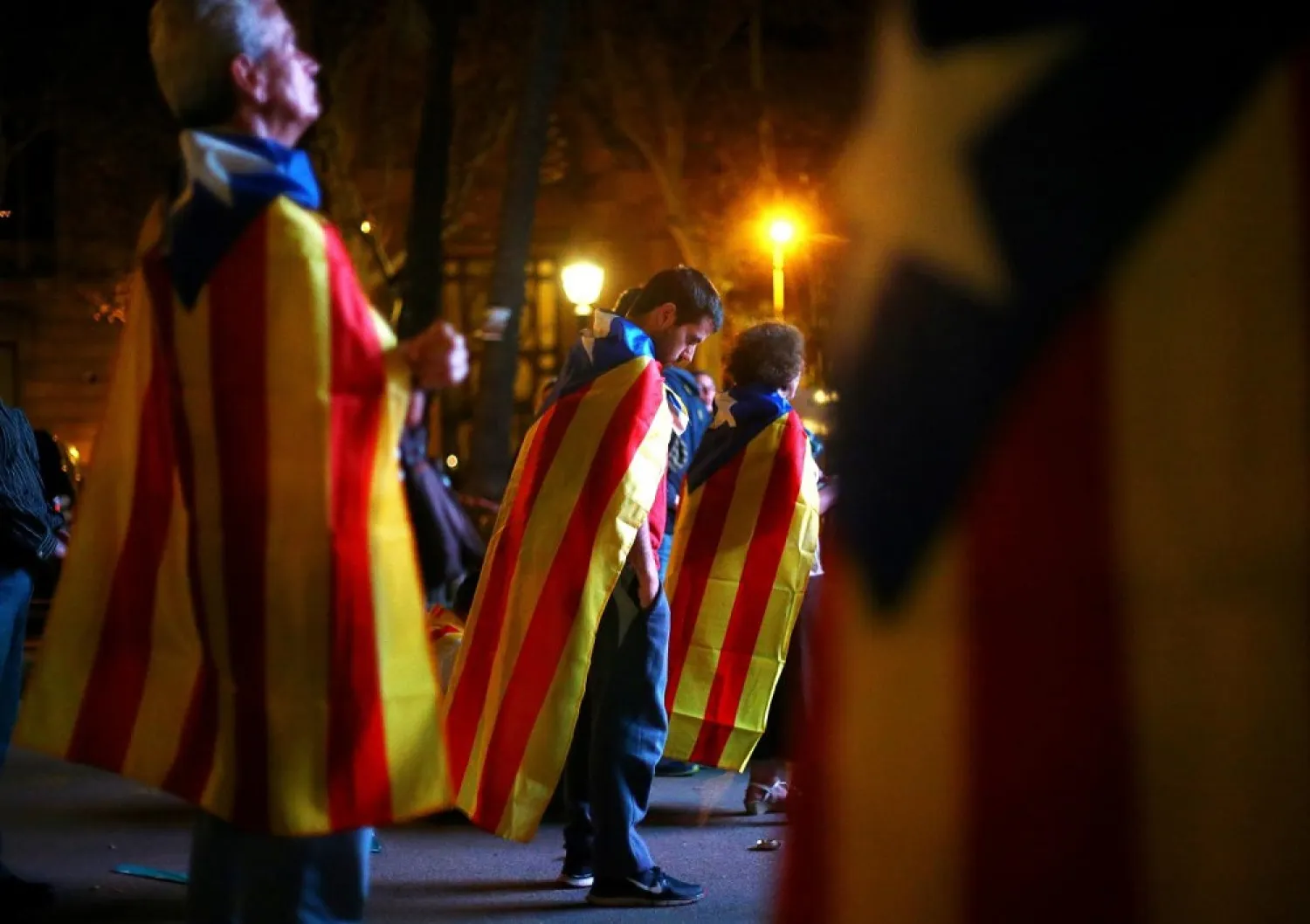Madrid lamented on Monday that the Catalan leader had failed to respond to its demand that he clarify if he had declared the northeastern region independent last week.
It has given Carles Puigdemont until Thursday to come up with a definitive "yes or no" answer as demanded by Prime Minister Mariano Rajoy last week shortly after the Catalan leader had told regional lawmakers last week he was ready for Catalonia to "become an independent state" following a secession referendum on October 1.
But he immediately said he was suspending proceedings to allow time for negotiations with Madrid.
Responding to an initial deadline set by the central government, Puigdemont sent a letter early Monday calling for talks with Rajoy "as soon as possible" amid Spain's worst political crisis in decades.
Anything less than a full climb-down by Thursday's 10:00 am (0800 GMT) deadline is likely to prompt moves by Madrid to impose direct control over the semi-autonomous region.
"The government regrets that the president of the Catalan government has decided not to respond to the request made by the government," Deputy Prime Minister Soraya Saenz de Santamaria told a news conference.
"All we are asking for is clarity."
In Monday's letter addressed to the premier, Puigdemont wrote: "For the next two months, our main objective is to bring you to dialogue."
In a written response, Rajoy said it was "absolutely necessary" that Catalonia clarify its position.
"I hope that in the hours that remain until the second deadline... you reply with all the clarity which citizens demand and the law requires," Rajoy said, calling on the Catalan separatists to "return to legality".
Puigdemont and some separatist allies want mediation with Madrid over the fate of the 7.5 million-strong region, an idea the central government says is a non-starter.
In his letter, he wrote that his "suspension of the political mandate given by the polls on October 1 demonstrates our firm will to find a solution and not confrontation.
"Our desire for dialogue is sincere, despite all that has happened," he added.
He also called on Spanish authorities to halt "all repression" in Catalonia, referring to a police crackdown during the referendum that left hundreds injured.
Puigdemont said the Spanish government should also end its sedition case against two senior Catalan regional police force officers and the leaders of two pro-independence associations. All four, including Catalan police chief Josep Lluis Trapero and Jordi Sanchez, the head of the Catalan National Assembly, were due at a hearing Monday in Spain's National Court in Madrid.
Officials are investigating the roles of the four in September 20-21 demonstrations in Barcelona. Spanish police arrested several Catalan officials and raided offices in a crackdown on referendum preparations.
The four were released after questioning October 6, but the court said they would be recalled once it reviewed new police evidence relating to the referendum.
Catalonia, an economic heavyweight that accounts for a fifth of Spain's economy, has its own language and distinct culture but is deeply divided over independence. Separatists argue the prosperous region is helping to prop Spain up, saying it pays more in taxes than it gets back and that a break from the rest of the country would allow it to prosper.
But the region itself is profoundly split on independence. Although separatists say 90 percent of people who voted on October 1 backed secession from Spain, turnout was just 43 percent as many unity supporters stayed home.
Puigdemont, a 54-year-old former journalist and father of two, is under intense pressure from Madrid and world leaders to back off.
But he is also being squeezed by his separatist allies to crack on with independence.
Rajoy said he is ready to invoke article 155 of Spain's constitution, allowing him to retake full control of Catalonia -- the so-called "nuclear option."
Suggesting Puigdemont and his team remained in no mood to follow Rajoy's game plan, Catalan interior chief Joaquim Forn said Article 155 did not allow Madrid to remove members of the Catalan government.
And Puigdemont's separatist allies have threatened mass strikes and protests in the event of a climb-down.
European Commission President Jean Claude Juncker last week said Catalan independence would encourage other regions to follow suit, potentially making the European Union ungovernable.









